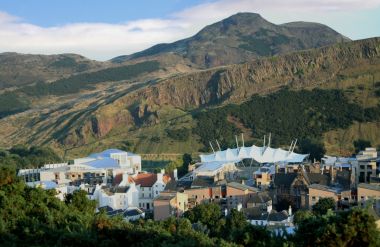SNP's abortion plans 'deeply disturbing'

The SNP's commitment to enshrining "the right to abortion" in the constitution of an independent Scotland is "deeply disturbing", a pro-life group has said.
The commitment was contained within a resolution proposed by the party's Elgin branch. It was passed by a show of hands at the SNP's National Conference on Sunday. The SNP's website states that when resolutions are adopted, they become SNP policy and "can be taken forward in government or championed at Westminster".
The resolution states that should Scotland become independent, the "right to abortion" would be written into its constitution.
It described legal abortion as "a fundamental aspect of healthcare and bodily autonomy" and said that it "should not be subject to the changing tides of political or judicial decisions".
The resolution claimed that by enshrining abortion into Scotland's constitution, it would safeguard access "against any potential political or legal regression".
Spokesperson for Right To Life UK, Catherine Robinson, said that if the proposal were to be realised, it would make abortion on demand legal for any reason up to birth.
She said this would represent a "radical change" and lead to Scotland having "one of the most extreme abortion regimes in the world".
"As one of the delegates made clear, the constitution of a country acts as its foundational document, defining, among other things, the country's basic principles of government and law," said Ms Robinson.
"It is deeply disturbing that SNP delegates have voted to make ending the lives of its unborn citizens one of those foundational principles."
She added, "This is a radical and inhumane proposal that would likely lead to the lives of many more babies being lost to abortion in Scotland."
SNP delegate Peter Grant warned that some supporters of independence may find it "extremely difficult" to back a constitution that enshrines a right to abortion.
"I don't want to see anything put in that constitution that jeopardises the possibility of the constitution becoming the constitution of a real independent Scotland rather than just a theoretical one," he said.











